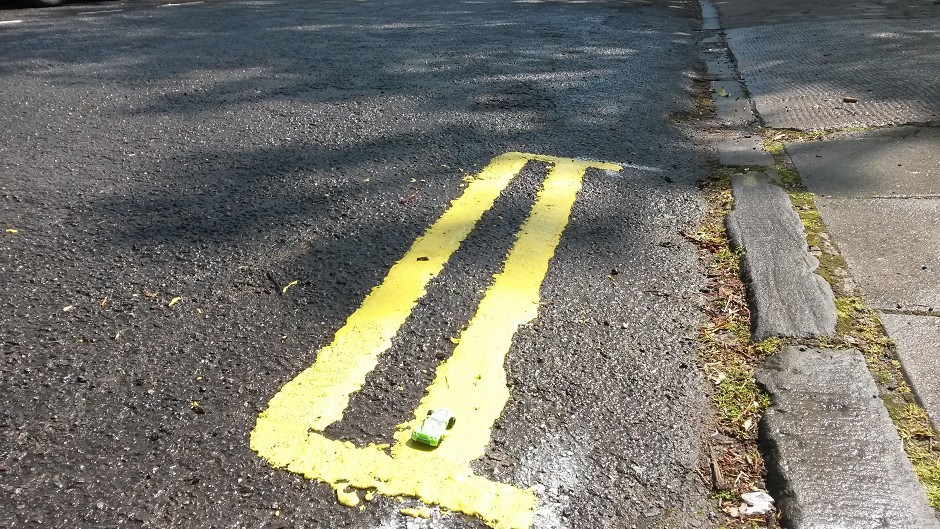Council workers are repainting almost 100 miles of street lines and replacing 1,600 signs as the biggest ever shake-up of parking rules gets under way in the Highlands.
The time-consuming £550,000 project has begun amid fears much of the existing legislation would not stand up to scrutiny in court when a revamped service is introduced later this year.
Just two police traffic wardens are currently operating across the whole of the Highlands – meaning there is effectively no enforcement of the rules in many places outside Inverness, and even in the city itself at certain times.
Highland Council had been planning to take over the running of the service from this month, introducing a new 12-strong team to crack down on rogue parkers.
But the Press and Journal revealed on Monday that the switchover has been delayed by six months because of the huge amount of work involved.
Two new Traffic Regulation Orders (TROs) are being produced for consultation, and will replace all existing on-street waiting and loading orders, as well as off-street car park orders.
In a briefing sent to councillors this week amid alarm behind-the-scenes at the delay, officials explained that the orders would “simplify and rationalise restrictions wherever possible”, and be map-based to allow “much more clarity of information for the public”.
It was also revealed that almost 500,000ft of street lines would need to be repainted as a result, while 1,600 signs and 500 signposts require to be replaced.
The memo said: “It is hoped members can appreciate the scale of this undertaking, in this, the single largest traffic management scheme undertaken by the council and the creation of a new service in the delivery of civil enforcement.”
Allan Henderson, chairman of the local authority’s community services committee, said last night: “Take Inverness for instance, there was very little of the actual lining that would stand up in a court of law, I believe.
“The lines that were there previously, over a period of time they have grown. Every one of them has to be backed up by traffic orders.
“They have to be done through law and there have to be documents to back them up. All the signage has to be correct. The right information has to be there.
“Some of them are right at the moment, some of them are wrong. It isn’t as clear as it should be.”
Mr Henderson added that it had turned out to be a “much bigger piece of work” than anticipated, and called for patience from residents.
“It’s a piece of work that probably none of us wanted, but now it’s there, it’s being done in a proper manner,” he said.
“The people will have to be patient about it. The councillors are on our backs about it as well.”
Local authorities have been able to apply for the “decriminalised” parking powers since 1997, and many councils in Scotland have been running their own services for several years.
Inverness Central councillor Donnie Kerr has raised concerns about the delay, and said city centre businesses have been complaining about the issue.
He said: “There are a lot of yellow lines, there’s signage. There’s an awful lot of work to be done, but they knew that when they were taking it on.
“I think we could’ve had a fuller explanation of why there are delays and how they are going to resolve it.”
Mike Smith, manager of Inverness city centre organisation BID, said the issue of people parking in loading bays had been raised with him.
“I think we’ve all become a bit lax in terms of parking, and it has been detrimental to business,” he said.
“There was a happy balance in the past where the traffic wardens helped the flow in the city centre, as well as enforcing the rules in the city centre. I think both are equally important.
“But we are, unfortunately, where we are, and we have to wait for it to be done.”
